Oakland Community Organizations (OCO) is composed of several dozen faith-based organizations whose congregants participate in OCO through the religious institution to which they belong. Affiliated since its inception with the Pacific Institute for Community Organizing (PICO), a nationwide network of similar groups, OCO works on multiple issues of concern to low- and moderate-income families in Oaklands’ flatlands neighborhoods. Key concerns include affordable housing, crime prevention, and education. Residents of the flatlands have been concerned that their schools are severely overcrowded and test scores low relative to schools in wealthier Oakland neighborhoods. In 1999, OCO joined forces with the Bay Area Coalition for Equitable Schools (BayCES), a school reform group working primarily with teachers, to launch a campaign to end the overcrowding and advocate for small autonomous schools. Through persistent, well-informed organizing and political action, OCO/BayCES moved the Oakland Unified School District toward the adoption and implementation of a Small Schools Policy which prioritized the flatlands and included ongoing involvement of parents, teachers and community members in the design and management of the new schools. This report discusses OCO’s accomplishments, which have made these achievements possible, in the indicator areas of community power, equity, social capital, and leadership development.
Strong Neighborhoods, Strong Schools: Case Study: Oakland Community Organizations
Eva Gold , Elaine Simon , Chris Brown
Date: March 2002
Related Publications
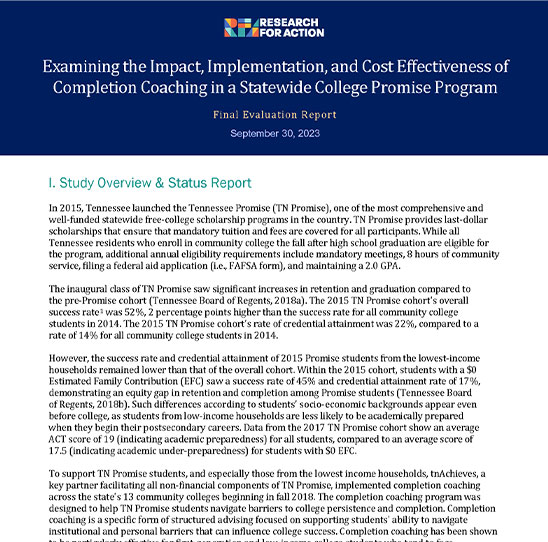
Publication
Examining the Impact, Implementation, and Cost Effectiveness of Completion Coaching in a Statewide College Promise Program
Dae Y. Kim, Karin Gegenheimer
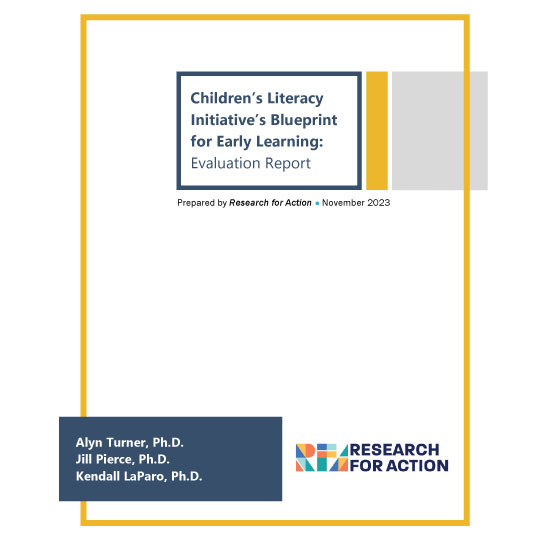
Publication
Children’s Literacy Initiative’s Blueprint for Early Learning: Evaluation Report
Alyn Turner, Jill Pierce, Kendall LaParo

Publication
Virtual Approaches Hold Promise for Expanding Afterschool Art Programming
Wendy McClanahan, Tracey A. Hartmann
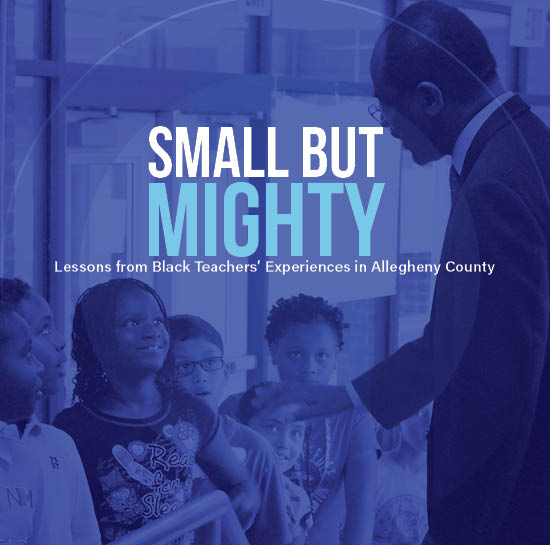
Publication
Small but Mighty: Lessons from Black Teachers’ Experiences in Allegheny County
Siettah Parks, Kevin Burgess, Leana Cabral, Mary Eddins, Alita Robinson
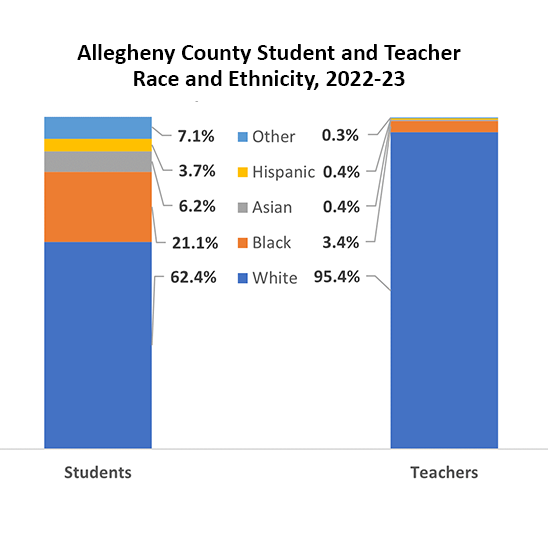
Publication
Allegheny County Teacher and Student Demographics: 2022-23 Update
Mary Eddins, David Lapp, Anna Shaw-Amoah
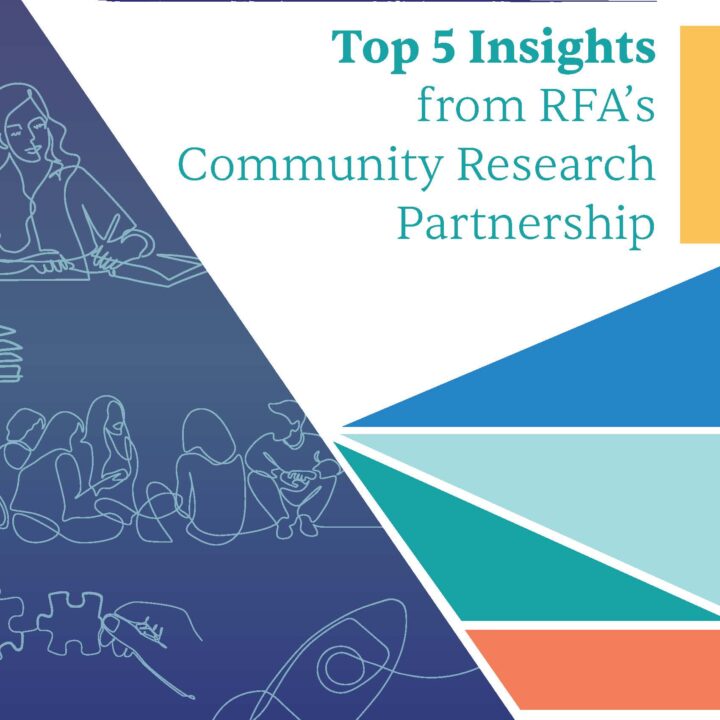
Publication
Top 5 Insights from RFA’s Community Research Partnership: Becoming a Community-Engaged Research Organization
Kate Callahan, Saxon Nelson

Publication
Exploring the Diversity and Supports for School District of Philadelphia English Learners as they Prepare to Transition to High School
David Bamat, Sean Vannata, Lindsey Liu, Molly Schlesinger, Alyn Turner
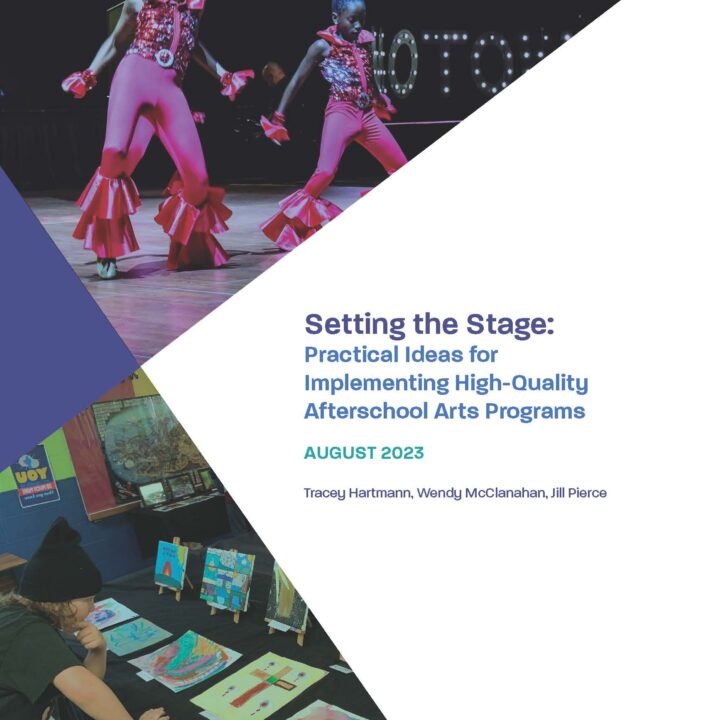
Publication
Setting the Stage: Practical Ideas for Implementing High-Quality Afterschool Arts Programs
Tracey A. Hartmann, Wendy McClanahan, Jill Pierce

Publication
Pennsylvania School Funding and School Staffing Disparities
David Lapp, Anna Shaw-Amoah
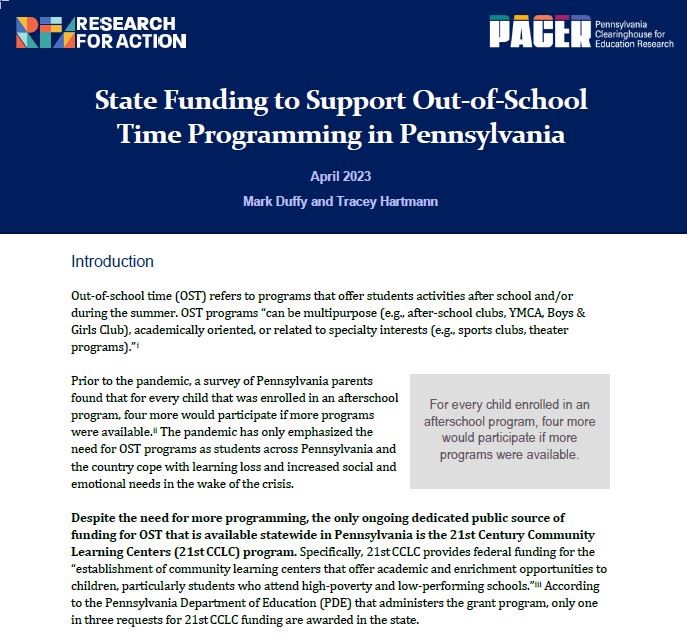
Publication
State Funding to Support Out-of-School Time Programming in Pennsylvania
Mark Duffy, Tracey A. Hartmann

Publication
“Worn & Weary” Black Teachers’ Storied Experiences and Recommendations around their Attrition and Retention in Philadelphia Schools
Leana Cabral, Lynnette Mawhinney, Jill Pierce, Carmina Hachenburg

Publication
Changing the Finish Line: Implications of new graduation requirements in the School District of Philadelphia
Sean Vannata, Anna Shaw-Amoah, Molly Pileggi, Molly Schlesinger, Theodore Wills, Roland Reyes, Alyn Turner